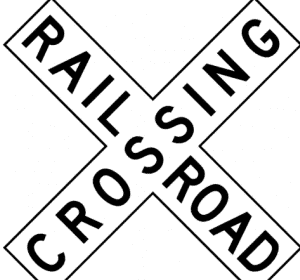

If we don’t win, you don’t pay.
NO WIN – NO FEE

ON CALL 24/7

U.S. Marine

Were You Hurt On A Local Train? Not Sure What To Do? Check Out The Train Accident Lawsuit Center Tips
Welcome to the first and last place you need to go to learn about train accidents and lawsuits. There are many factors to consider when suing for a bad wreck. This site explains the steps. But it also covers the many types of operations involved in rail transport. First, understand that passenger train smashup ups on U.S. railroads raise issues of joint carrier liability.
Cargo transport companies get hauled into court when they violate their standard duty to stop derailments. And that could result in toxic chemicals, or people outside the train’s safety getting killed, etc.
On the other hand, passenger trains have this heightened duty of care to keep the paid travelers safe while aboard the vehicle. These common carriers are typically the owners, operators, and managers of the cars. They become liable in court when someone on the train dies or is hurt. And this is because the catastrophe took place when the responsible carrier for hire failed to abide by their high care standard.
Even the tiniest bit of negligence can be enough for a train accident injury lawsuit. Also, Ehline Law deals with these cases all the time. And right now, the firm is providing these free resources. Hopefully, we can assist you in your endeavors. A lawyer that knows how to file a lawsuit can effectuate your negligence claims.
Common Carrier Status Covers More Than Just Train Crashes.
In addition to the terrible mishaps on trains from strikes and derailments, the train’s common carrier status also opens it to passenger claims. So this includes things like a waiter spilling hot coffee, liquids left on the floor, and common walkways. Also, areas leading to a bad trip, slip and fall, food poisoning, and dangerous falls are often compensable.
If due to sudden and irresponsible braking by the engineers, it could become much worse. Of course, regular liability in tort also applies to those outside the locomotive. So it could be a defective railroad crossing arms or traffic signals that caused the collision.
The most significant protection is a lawyer and keeping your mouth shut. Only wait until you get the “all clear.” The next consideration is hiring a lawyer. Most of all, when government entities are involved, you need a rapid response attorney. It could be there is an overlapping contract or federal and state law conflict.
So your attorney must understand the chance of a shortened statute of limitations or time to sue. If the “Tort Claims Act” comes into play, be prepared for a battle. Also, be ready for procedural nightmares. These can ruin your case before you get it before a trier of fact. But this is because you are suing the city or county under the Tort Claims Act.
Notice Requirements.

Assuming the Tort Claims Act applies, you usually have six months to file a lawsuit. Failure to do so means you can’t sue. You are left to fend for yourself. Because the government has sovereign immunity in many cases, it makes things difficult. Usually, the only exceptions are when the legislature carves out an exception, as they have done here. The Government Code contains many provisions dealing with claims against municipalities.
But to make it easy, for example, some private companies contract with the government. So there may be state actors with deep state pockets to cover your injuries. But it would be best if you had legal assistance to understand all these nuances and rules. If hurt, the smart move is to call us or fill out our form in the sidebar.
Once you do that, relax and await our prompt reply. Get a free case review by a lawyer who specializes in lawsuits against train companies. Also, call us free at (888) 400-9721.

